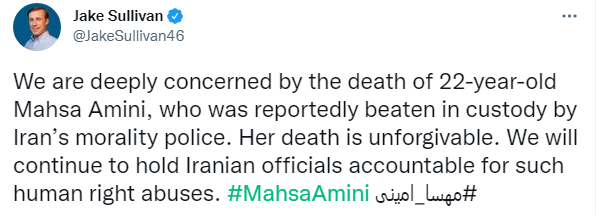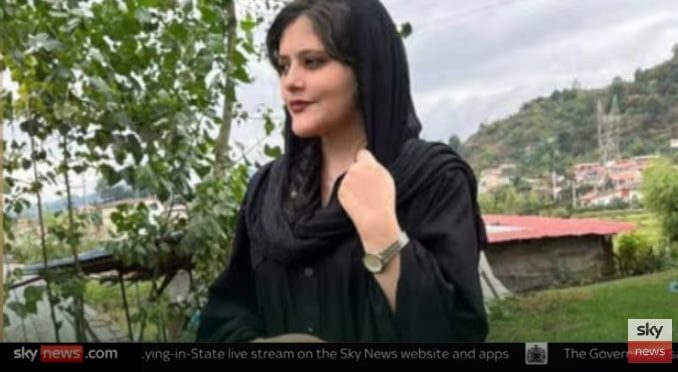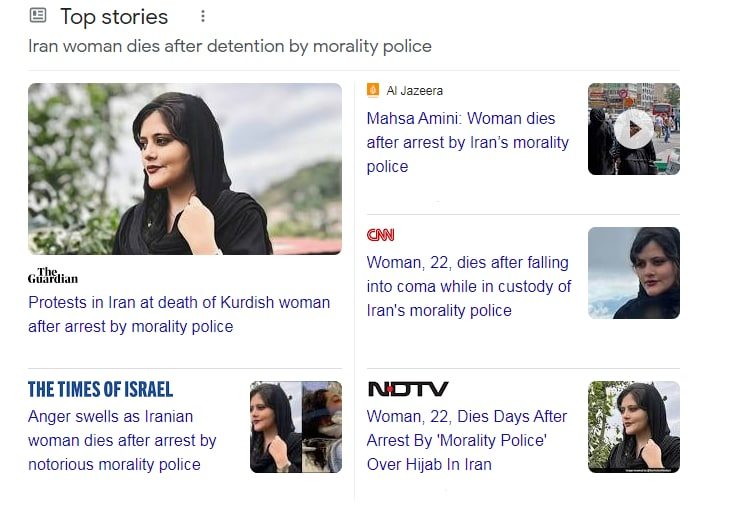Global Reflection on the Death of Mahsa Amini
The death of Mahsa Amini had a global impact on the news. Mahsa Amini, a 22-year-old girl from Saqqez, was severely injured by the morality police and was admitted to the hospital’s intensive care unit. Images of her in the ICU, surviving only with the help of machines, shook many in Iran. In a world filled with various news, alongside the clamor of the US elections and the death of the Queen of Britain, attention turned to Ukraine and the Russian atrocities there, with the discovery of mass graves containing hundreds of tortured innocents causing a stir.
This world, filled with bitter and mournful news, did not remain indifferent after the news of Mahsa Amini’s death. The widespread coverage of this young girl’s tragic death was unexpected even for many Iranian journalists and political activists.
Numerous politicians reacted to Mahsa Amini’s death on social media. Robert Malley, in his statement and tweet, described the event as abhorrent and expressed sympathy with her family, urging Iran to end violence against women.
Jake Sullivan, the US National Security Advisor, also deemed this event unforgivable and stated that the US government is determined to continue exerting pressure on the Iranian regime to take responsibility for human rights violations. We should expect continued reactions from European and American politicians in the coming days, especially as the annual session of the UN Human Rights Council is underway, with a special focus on women’s issues this year.

In terms of media coverage, it should be noted that, as expected, Kurdish media have reacted seriously to this issue, and the emotions of the Kurdish people have been deeply stirred by the death of a girl from Saqqez. This is one of the serious damages inflicted on the country’s political structure by the irresponsible and foolish actions of unaccountable officials.
In Britain, while the news of the discovery of mass graves in Ukraine briefly interrupted the various memorial ceremonies for Queen Elizabeth, it was astonishing that the BBC, Sky News, and other British visual media included the news of Mahsa Amini’s death among their top stories, complete with images and detailed explanations, referencing Iran’s morality police.
European media in various countries have published and covered this news. Major media outlets in the Netherlands, Belgium, France, and Germany have addressed this issue. In all these cases, the unfamiliarity and strangeness of the subject and entities like the morality police are less visible, and it should be noted that the media activities of journalists and media experts over the years have helped them understand the various aspects of politics and society in other countries.
Thus, other unaccountable officials can no longer claim that Western journalists, researchers, and politicians do not understand Iranian culture and society. The special and tangible reflection of the news regarding Mahsa Amini’s tragic death demonstrates that the cultural and political dimensions of a society like Iran are not so unfamiliar and unknown to the people of other countries in this era of globalization and cultural and political interconnection. The anger and regret reflected in the media coverage of this news are, in fact, a reflection of the anger and regret of Iranians and are in solidarity with us.
What needs to be seriously addressed is the distressing reflection of Mahsa Amini’s death in Arab and Israeli media. Al Arabiya has highlighted this news for hours, and Saudi media have detailed it. It is humiliating for us Iranians that the media of a country with a special police for religious observance, whose crown prince’s great achievement was the partial shutdown of the religious police, and which has annually been the scene of bizarre and numerous executions of religious rulings, should target our country’s morality police with their criticisms.
What needs to be seriously addressed is the distressing reflection of Mahsa Amini’s death in Arab and Israeli media. Al Arabiya has highlighted this news for hours, and Saudi media have detailed it. It is humiliating for us Iranians that the media of a country with a special police for religious observance, whose crown prince’s great achievement was the partial shutdown of the religious police, and which has annually been the scene of bizarre and numerous executions of religious rulings, should target our country’s morality police with their criticisms.
Israeli media have devoted serious airtime to the coverage of Mahsa Amini’s death and public outrage. The Times of Israel and The Jerusalem Post have published special reports that should awaken the conscience of the Islamic Republic’s system sympathizers not to remain silent in the face of the Iranian people’s joy at the enemy’s actions. Israeli news about the morality police has severely portrayed a dark image of Iran in the domain of state media, which is still not accountable for the killing of Shireen Abu Akleh, the Palestinian-American journalist.
What has happened in the media arena in recent hours is a warning to all of us Iranians, and of course, there is hope that someone somewhere can and will awaken the irresponsible officials.


